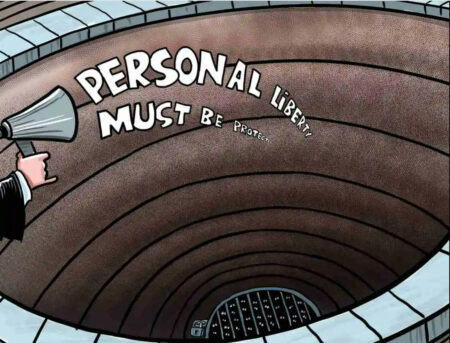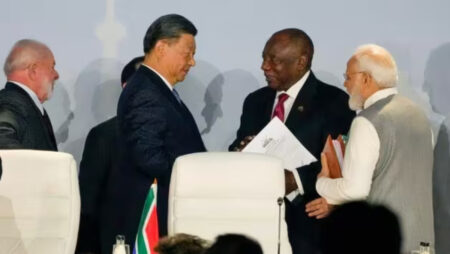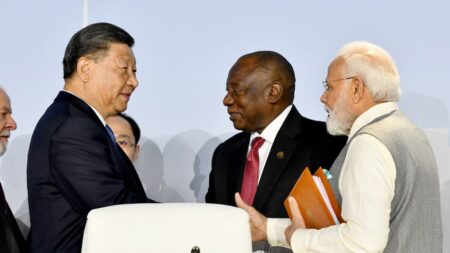Search Results: air india (5326)
The textile fashion industry has been falsely advertising to the consumers for over a decade. In terms of production procedure…
The discourse delivered by Justice Siddharth Mridul of the Delhi High Court at the Centre for Discourses on Criminal and Constitutional Jurisprudence emphasized the crucial significance of personal liberty and the principle of presumption of innocence within the framework of the criminal justice system. The discourse shed light on the evolving nature of these principles, their historical context, and their relevance in contemporary democracies.
Justice Mridul’s address commenced with the assertion that personal liberty is a cornerstone of civilization, not just a modern concept. He traced its historical evolution from conflicts between subjects and monarchs to the present-day struggles between citizens and the executive branch in democratic societies. Protecting individual liberty remains a central obligation in a thriving democracy.
The principle of presumption of innocence was highlighted as the “elixir” of the criminal justice system by Justice Mridul. He discussed its progression from being recognized as a human right by the Supreme Court to its elevation as a fundamental right in India. This presumption, he argued, is vital not only for shielding the innocent but also for upholding the integrity of the legal process.
Justice Mridul delved into the emergence of constitutional guarantees as contemporary safeguards for personal liberty against state intervention. He explained that the act of guaranteeing liberty implies a higher authority that ensures it as a special privilege. The Constitution’s role in safeguarding personal freedom from legislative actions encapsulates the essence of this guarantee.
The discourse further explored the tension between the crime control model and the due process model. While the former emphasizes punishing the guilty and may lead to wrongful convictions, the latter prioritizes the rights of the accused, even if some guilty individuals go unpunished. Justice Mridul emphasized that both models share the common goal of punishing the guilty while safeguarding the innocent.
Justice Mridul underscored that the presumption of innocence is intricately linked to the concept of bail. He acknowledged the state’s interest in preventing serious offenses but argued that traditional bail rules are sufficient to achieve this goal. These rules necessitate a comprehensive assessment of factors such as the accused’s background, the strength of the case against them, and the gravity of the offense before granting bail.
In conclusion, Justice Mridul emphasized that every accused individual, irrespective of their charges, is entitled to the presumption of innocence and the fundamental principles of fairness enshrined in Article 21 along with Article 14 of the Indian Constitution. He cautioned against treating two offenders differently with regard to the presumption of innocence, as this would violate Article 14.
Justice Siddharth Mridul’s discourse served as a poignant reminder of the vital role that personal liberty and the presumption of innocence play within the criminal justice system. His insights underscored the delicate balance that legal systems must maintain between crime control and due process models. This discourse encourages law students and legal practitioners to champion the safeguarding of fundamental rights and uphold the principles upon which modern democracies are constructed.
Shaping the Future: NLSIU’s Vision Expands Beyond Borders- Bengaluru, 26th August: The National Law School of India University (NLSIU) celebrated…
The renowned Indian spinner Ravichandran Ashwin has provided some advice and released a lengthy statement outlining his viewpoint on the…
CJI, DY Chandrachud spoke volumes about his internal dialogues on the nature and status of Law communities and its practices in India.
Prime Minister Narendra Modi spoke to Chinese President Xi Jinping about “outstanding issues” along the Line of Actual Control, and…
On Thursday, the names of the recipients for the National Film Awards 2024 were declared. Big names for the awards…
Prime Minister Narendra Modi expressed deep emotion while addressing the dedicated team of scientists at the Indian Space Research Organisation…
After the contentious issue of Galwan between the two countries, Modi and Xi engage in a candid conversation on pressing…
Prime Minister Narendra Modi met Indian Space Research Organisation or ISRO scientists involved in the successful Chandrayaan-3 mission to the…
Contact us:
Copyright © 2024 Asiana Times. All Rights Reserved















